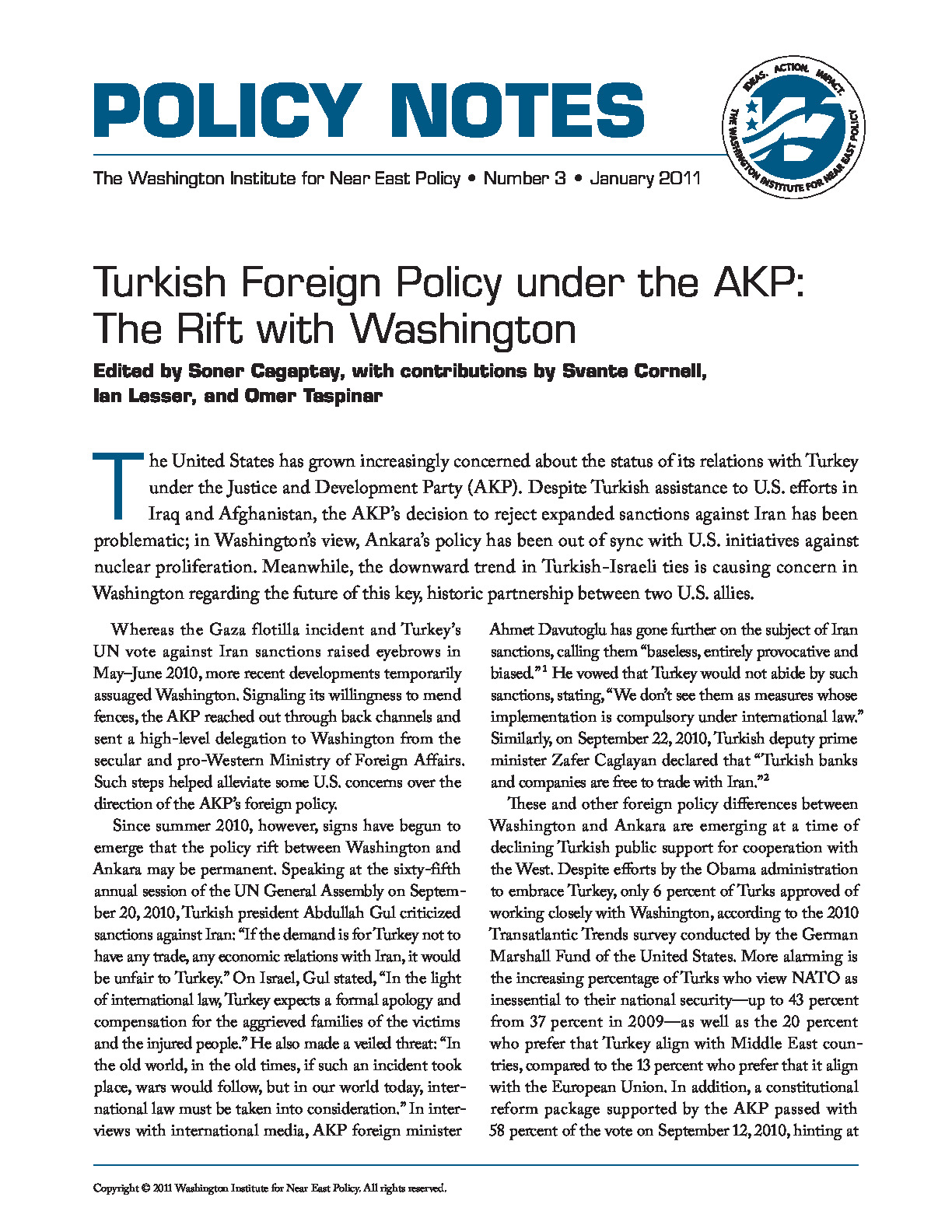The United States has grown increasingly concerned about its relationship with Turkey under the Justice and Development Party (AKP). From rejecting expanded sanctions against Iran to downgrading bilateral ties with Israel, the AKP seems bent on radically transforming its longstanding partnership with the West on key regional issues. And since summer 2010, signs have emerged that the policy rift between Washington and Ankara may be permanent.
This Policy Note, edited by senior fellow Soner Cagaptay, offers several compelling explanations for, and responses to, the shift in Turkish foreign policy. Featuring contributions from Svante Cornell, Ian Lesser, and Omer Taspinar, the report discusses how the shift is rooted in Islamism, Gaullism, nonaligned foreign policy, and hubris. By understanding these proclivities and treating the AKP accordingly, the United States and its allies will be better equipped to navigate the complex relationship between Turkey and the West.
the Authors
Soner Cagaptay is director of the Turkish Research Program at The Washington Institute. A historian by training, he served as the Ertegun professor in Princeton University's Department of Near Eastern Studies from 2006 to 2007. Currently, he works as a visiting professor at Georgetown University's School of Foreign Service.
Svante Cornell is research director of the Central Asia-Caucasus Institute and Silk Road Studies Program, a joint center affiliated with Johns Hopkins University's School of Advanced International Studies and the Stockholm-based Institute for Security and Development Policy, where he serves as codirector.
Ian Lesser is a senior transatlantic fellow at the German Marshall Fund of the United States, leading the organization's work on Turkey, the Mediterranean, and wider Atlantic security issues.
Omer Taspinar is a nonresident senior fellow at the Brookings Institution, a professor at the National War College, and an adjunct professor at Johns Hopkins University's School of Advanced International Studies.
-
16 pages


